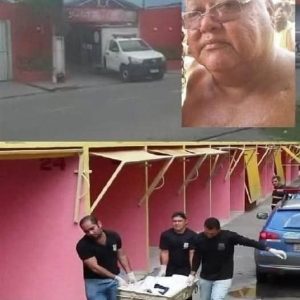As people grow older, some minor changes like occasional forgetfulness or slower movement are often considered normal. However, sudden onset of confusion, difficulty speaking, loss of balance, or numbness may indicate a more serious issue, such as a transient ischemic attack (TIA), commonly known as a mini-stroke. Unlike typical age-related changes, these symptoms arise abruptly and require immediate attention, as they can be critical warning signs of a future major stroke. Understanding the difference between normal aging and these urgent symptoms is crucial for timely intervention and prevention.
A TIA happens when blood flow to a portion of the brain is temporarily blocked, usually by a small clot or narrowing in the arteries. Although the symptoms often last only a few minutes and resolve on their own, the event should never be ignored. Its brief and reversible nature can be misleading, giving the false impression that no harm has occurred. Nevertheless, a TIA is a clear alert that the brain has experienced insufficient blood flow, and without proper evaluation and management, a more severe stroke could follow. Recognizing these warning signs promptly can save lives and reduce the risk of long-term disability.
Certain factors increase the likelihood of experiencing a TIA. People with high blood pressure, diabetes, high cholesterol, heart disease, or a history of smoking are at higher risk. Age and family history also play a role in susceptibility. Being aware of these risk factors allows individuals and caregivers to adopt preventive strategies, seek routine checkups, and respond quickly if symptoms appear. Early awareness can make the difference between a minor incident and a life-altering stroke.
When a TIA occurs, immediate medical evaluation is critical. Healthcare professionals can perform diagnostic tests to determine the cause and guide appropriate treatment. Interventions often include medications such as blood thinners, as well as management of cholesterol and blood pressure. In some cases, surgical procedures may be recommended to improve blood flow to the brain. Timely action not only addresses the immediate risk but also significantly reduces the likelihood of future strokes.
Lifestyle adjustments play a vital role in both prevention and recovery. Regular physical activity, quitting smoking, limiting alcohol intake, maintaining a balanced diet, and managing stress are all proven ways to lower the risk of TIA and subsequent strokes. These habits support overall cardiovascular health and enhance brain resilience. Incorporating these practices consistently can strengthen the body’s natural defenses and contribute to long-term well-being, preserving independence and quality of life.
A mini-stroke should never be viewed as a minor or passing event. It is the body’s urgent signal that something needs attention. Recognizing symptoms early and seeking prompt medical care can safeguard brain health, prevent more severe strokes, and protect precious years with loved ones. Awareness and swift action transform a potentially dangerous warning into an opportunity for prevention, turning a moment of vulnerability into a path toward lasting health and security.





